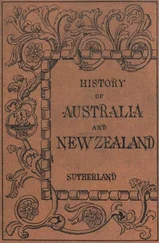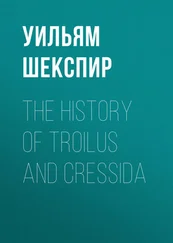William Finch-Crisp - Chronological Retrospect of the History of Yarmouth and Neighbourhood
Здесь есть возможность читать онлайн «William Finch-Crisp - Chronological Retrospect of the History of Yarmouth and Neighbourhood» — ознакомительный отрывок электронной книги совершенно бесплатно, а после прочтения отрывка купить полную версию. В некоторых случаях можно слушать аудио, скачать через торрент в формате fb2 и присутствует краткое содержание. Жанр: История, foreign_antique, foreign_prose, на английском языке. Описание произведения, (предисловие) а так же отзывы посетителей доступны на портале библиотеки ЛибКат.
- Название:Chronological Retrospect of the History of Yarmouth and Neighbourhood
- Автор:
- Жанр:
- Год:неизвестен
- ISBN:нет данных
- Рейтинг книги:5 / 5. Голосов: 1
-
Избранное:Добавить в избранное
- Отзывы:
-
Ваша оценка:
- 100
- 1
- 2
- 3
- 4
- 5
Chronological Retrospect of the History of Yarmouth and Neighbourhood: краткое содержание, описание и аннотация
Предлагаем к чтению аннотацию, описание, краткое содержание или предисловие (зависит от того, что написал сам автор книги «Chronological Retrospect of the History of Yarmouth and Neighbourhood»). Если вы не нашли необходимую информацию о книге — напишите в комментариях, мы постараемся отыскать её.
Chronological Retrospect of the History of Yarmouth and Neighbourhood — читать онлайн ознакомительный отрывок
Ниже представлен текст книги, разбитый по страницам. Система сохранения места последней прочитанной страницы, позволяет с удобством читать онлайн бесплатно книгу «Chronological Retrospect of the History of Yarmouth and Neighbourhood», без необходимости каждый раз заново искать на чём Вы остановились. Поставьте закладку, и сможете в любой момент перейти на страницу, на которой закончили чтение.
Интервал:
Закладка:
One penny per swill by day and 1½d. at night were charged for carting herrings from the beach.
Caister Castle deserted as a residence.
Sir Henry Hobart and T. Damett, Esq., again returned to Parliament; the latter, with John Wheeler, Esq., also returned on the accession of James I.
The Dutch Chapel, South Quay, built, and afterwards converted into a Theatre.
Every Alderman, or his deputy, with a constable, ordered to visit all ale-houses and taverns twice a week, and make inquiries respecting the customers.
The washing and rinsing of nets near the public wells forbidden.
The town required to provide and provision ships for transporting 600 soldiers to the Low Countries.
Charles Howard, Earl of Nottingham, K.G., Lord High Admiral of England, elected High Steward of the Borough.
A third Market Cross erected.
The three local rivers frozen over for 40 days.
James I. made Yarmouth a free Borough by charter, by the title of Bailiff, Aldermen, Burgesses, and Commonalty; which charter in 1683 (Charles II.) was surrendered to the King. (See July 22nd, 1684.)
Drapers, mercers, grocers, and haberdashers prohibited from having stalls in the market.
Herring Fair held. A great scarcity of herrings this year – a last of Windsor herrings being sold for £15 5s.
Great damage done to the Piers by a raging tide.
Aldermen who had held office as Bailiffs, compelled to wear scarlet gowns with tippets, under pain of a 40s. fine. (See 1541.)
The present Haven completed at a cost of £38,682, and from this date to 1770 inclusive, £215,644 had been expended about the Haven and Piers.
Sir Theophilus Finch and G. Hardware, Esq., returned to Parliament, but the former was succeeded soon after by Sir Henry Hobart.
One hundred jacobuses (a gold coin struck in the time of James I.) presented to King James I. by the town, as a mark of loyalty and affection.
At Corporate meetings no gentleman allowed to make uncomely and indecent speeches out of time and order, or create a disturbance when touching upon any public good, or even allowed to make a remark till the previous speaker had sat down, under penalty of fine or dismissal.
About 50 Yarmouth fishermen laid up their vessels, having no licenses for exportation.
License granted for the export of 600 lasts of herrings, which was annually renewed till 1624.
The Cage or Stock-house set up.
An ordinance made that all doors opening outwards into the Rows should be made to swing inwards, otherwise the constables would nail them up, and levy a fine of 5s. on the owners.
The last demand made by the Crown for furnishing vessels of war, until Charles I. resorted to that means of raising a revenue without the sanction of Parliament.
Dec. 21st. John Cowldham, J.P., four times a Bailiff, died, aged 84 years.
B. Cowper and Edward Owner, Esqs., free Burgesses, elected to Parliament.
“Tippling houses” had increased to 40, and were restricted to that number.
Benjamin Cowper, Esq., re-elected, with G. Hardware, Esq., to serve in Parliament.
Artillery yard on the site of present Unitarian Chapel.
Dec. 29th. Poor people were ordered not to marry unless sanctioned in writing by the Chief Alderman and Chief Constable.
Manship, who wrote the “History of Great Yarmouth,” died. He was Town Clerk in 1579.
Sir John Corbet and E. Owner, Esq., elected to Parliament; and in the same year Sir John was re-elected with Thomas Johnson, Esq.
Fish Market, on the site of the present, covered in and paved. Covering removed in 1844.
Robert Sydney, Earl of Leicester, K.G., High Steward of the Borough.
Nicholas Felton, Bishop of Ely, died. He was a native of Yarmouth, and one of the prelates employed by James I. in the new translation of the Bible.
Sir John Wentworth and Miles Corbet, Esq., elected to Parliament.
The town obtained leave to export 1,000 lasts of herrings, which continued till 1637, when £50 per annum was demanded by the Trinity for 10 years, and afterwards for 40 years.
Twelve hundred householders in Yarmouth.
Edward Sackville, Earl of Dorset, K.G., High Steward of the Borough.
Fishing with a trawl prohibited by proclamation.
£1 a quarter paid by the town to the Postmaster of Ipswich for carrying letters to and from Yarmouth for London.
Tobacco allowed only to be retailed in this town by one apothecary, six grocers, two hosiers, one merchant, and a chairmaker.
June 26th. Four Frenchmen executed for murdering Nicholas Harpley.
Aldermen’s wives compelled to wear velvet hats up to this date, when the ordinance was annulled.
Thirty-four brewing-houses in Yarmouth.
Miles Corbet, Esq., re-elected, with Edward Owner, Esq., as members of Parliament.
The East and West Flegg granted to the family of Cornwallis.
Oct. 12th. A ship, with 140 armed soldiers on board, through stress of weather, put into Yarmouth port; she was seized by the townsmen, and her crew and soldiers imprisoned on behalf of the Parliament.
Sept. Earl of Warwick, Lord High Admiral, visited Yarmouth, and was entertained by the Corporation.
Dec. 23rd. A rate of £1,200 assessed upon the inhabitants for the fortifications.
The town collected £136 for the relief of distressed subjects in Ireland.
Feb. Lord Grey of Werke required Yarmouth to send 80 dragoons to Cambridge.
The number of “tippling-houses” increased to 80, besides great inns and taverns; and in 1705 augmented to 120.
Letters between Yarmouth and London only passed once a week.
Twenty Iceland fishing barques belonging to Yarmouth merchants taken by pirates, only three escaping.
Additional fortifications made. Breastworks and platforms built at the seaside, and ordnance mounted on them.
The Earl of Lauderdale visited Yarmouth, and was sumptuously entertained at the town’s expense.
Sep. 9th. Lord Fairfax marched into Yarmouth, and the town was converted into a garrison.
Three men-of-war ships sent to convoy the fishers and guard the coast.
The Burgesses raised 600 foot and 50 horse soldiers, in lieu of having other forces marched into the town to do garrison duty.
Four Aldermen and 16 Common Councillors resigned office in the Corporation; 6 were afterwards reinstated.
The Puritans removed a fine old organ from St. Nicholas’ Church.
The Presbyterians made a doorway in the north wall of the Parish Church, and opened the north aisle of the chancel for public worship.
Up to this date prayer was always used before the commencement of public business.
Admiral Blake sent several ships to Yarmouth, which he had captured from the Dutch.
Читать дальшеИнтервал:
Закладка:
Похожие книги на «Chronological Retrospect of the History of Yarmouth and Neighbourhood»
Представляем Вашему вниманию похожие книги на «Chronological Retrospect of the History of Yarmouth and Neighbourhood» списком для выбора. Мы отобрали схожую по названию и смыслу литературу в надежде предоставить читателям больше вариантов отыскать новые, интересные, ещё непрочитанные произведения.
Обсуждение, отзывы о книге «Chronological Retrospect of the History of Yarmouth and Neighbourhood» и просто собственные мнения читателей. Оставьте ваши комментарии, напишите, что Вы думаете о произведении, его смысле или главных героях. Укажите что конкретно понравилось, а что нет, и почему Вы так считаете.












